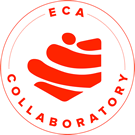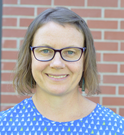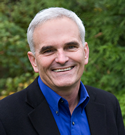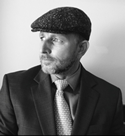CCI Alumni Webcast: Generative AI Demystified: Navigating AI in Our Daily Lives
Recorded on: September 17, 2024
Whether we like it or not – Artificial Intelligence (AI) has become an integral part of our lives with revolutionizing industries and shaping our future. In this exciting session, we will dive into the world of AI and explore the transformative impact of Generative AI in tools like ChatGPT.
Learn more…
CCI LIVE 2023 Virtual Conference
“Leading Change at Home: Empowering Resilient Leaders in Community Development”
Date: December 12, 2023
In this conference CCI alumni will hear from several leaders in different fields about their strategies for staying motivated to learn, to lead, to innovate, and to help others in their communities. They will also learn how to strengthen their own ability to promote change in their communities through resilient leadership, professional development, and effective communication.
Learn more…
CCI Alumni Webcast: International Education Week
Recorded on: November 16, 2023
We’re celebrating International Education Week with CCI alumni and Assistant Director, Sara Mohamed. Join us online as we discuss the role of international education in fostering global citizenship and professional development. There will be time for discussion, so be ready to share your experience as an international exchange student!
Learn more…
CCI Alumni Webcast: How Are Indian Alumni Making an Impact?
Recorded on: October 24, 2023
Join us for a thought-provoking webinar about empowering change and addressing community challenges. This engaging session will shed light on the incredible efforts of Indian alumni who have embraced their roles as changemakers within their communities. Puja will share their inspiring stories, focusing on the diverse range of challenges they have tackled and the innovative solutions they have implemented.
Learn more…
CCI Alumni Webcast: Where Are They Now?
Recorded on: October 03, 2023
Join CCI Alumni Martin Jonah (Ghana, College of DuPage, Engineering, 2021-22) and Pew Chowdhury (Bangladesh, Northern Virginia Community College, Tourism and Hospitality, 2016-17) as they discuss their CCI journey and the initiatives they’re implementing within their communities.
Learn more…
CCI Alumni Webcast: Cultural Exchange
Recorded on: September 12, 2023
This webcast features alumni experiences from Mahan Telegbe and Nada Amin, who discuss their cultural exchange journey. They will also talk about what they’re doing to make a difference in their communities.
Learn more…
Contributing to the Climate Movement
Recorded on: June 13, 2022
One of the key goals of the international climate movement is for our planet to not surpass a global temperature rise greater than 1.5 degrees celsius. For that to happen, action is required at all levels – global, national, local, community, and individual. But how can individuals get started? How can individuals continue and scale their action efforts?
Learn more…
CCI LIVE: Effective Communication in Virtual Spaces
Recorded on: September 13, 2021
Communication is a complex skill that involves intertwining layers of meaning, intention, context, and interpretation; adapting to the different contexts, aims, and people is key to improving communication skills. This is especially true for communication in virtual spaces as the online world has become a more common part of our everyday lives. Now, an effective communicator is one that not only understands the physical communication space but also the virtual space and is able to apply communication strategies to that virtual space.
Learn More…
CCI LIVE: Leveraging LinkedIn
Recorded on: March 29, 2021
In this global, digital age, to grow your network, build your brand and find the right opportunities, there is no more powerful tool than LinkedIn. Are you using your profile to its full advantage?
Learn More…
CCI LIVE: Cultivating Motivation and Finding Opportunity in Adversity
Recorded on: December 12, 2020
In this conference, CCI alumni heard from several leaders in different fields about their strategies for staying motivated to learn, to lead, to innovate, and to help others in challenging times. Learn More…
Understanding Disability and Building Inclusive & Interdependent Communities
Recorded on: November 16, 2020
Disability is a natural part of the human experience. In addition, people who are deprived of opportunities, resources or safety, for example, experience disability at higher rates than people in well-resourced and safe communities. Learn more…
Understanding Misinformation: How to Recognize and Stop the Spread of False Information
Recorded on: September 14, 2020
Misinformation is a challenging and global issue that can have a real impact on people’s daily lives, but it can often be difficult to recognize or understand. Why does it exist, how does it spread, and what can we do about it? Learn more…
Continuing Your Project During a Crisis
Recorded on: August 17, 2020
How to manage a project during a global health crisis is not something we’ve practiced, but even in these difficult times, we all want our projects to succeed. In this session, you will learn tips to minimize project challenges and disruptions. Learn more…
Re-entry Reflection for Alumni
Recorded on: April 20, 2020
In this webinar, you’ll reflect on your time in the US, your return home, and how you want to use what you learned in both experiences in your life going forward. Whether you’ve been back for several months or several years, it’s always helpful to look back at how living abroad impacted who you are and what you want your life and career to be like now. You’ll learn concepts that will help you talk about your re-entry experience with greater depth and meaning, and you’ll have opportunities to reflect and share with other alumni. Learn more…
Building Resilience: How to Overcome Burnout and Manage Priorities
Recorded on: December 16, 2019
Managing priorities related to family, health, work, and personal goals can be challenging. Our performance is strongest when we feel confident and in control in the face of being overwhelmed. So how can we build resilience when we feel like we are going to burn out? Learn more…
Making the Most of Mentorship
Recorded on: September 16, 2019
From social media to multinational corporations, everyone seems to be talking about the value of mentorship. In this hour-long webinar, we discuss how finding a mentor can enhance your performance at work in richer ways than any book, podcast, or seminar could produce. Learn more…
CCI LIVE: Amplify Your Impact
Recorded on: July 27, 2019
On July 27, 2019, the Community College Initiative Program hosted a virtual conference exclusively for CCI alumni. The conference sessions encouraged alumni to think purposefully about their impact at various stages of work and community projects. Expert speakers offered inspiration and concrete strategies for making a difference. Attendees also had opportunities to connect with fellow alumni to share ideas, resources, and experiences. Learn more…
From Frustrated to Funded: How to Write a Standout Grant Proposal
Recorded on: June 17, 2019
This webcast features professional editor Jennifer Butters practical tips consider to maximize your chances of success when writing grants.
Learn more…
Leading Like a Champion: Using Lessons from Elite Teams to Strengthen Your Business
Recorded on: March 18, 2019
This webcast features Talent Development and Performance Consultant Gerald Jones II helping new or aspiring business leaders focus their plans using three essential actions
Learn more…
Balancing Act
Recorded on: December 17, 2018
This webcast features life coach and wellness expert Vicki Moulton, CCP (Certified Coach Practitioner) as she leads a motivating discussion about work-life balance.
Learn more…
Emotional Intelligence at Work: How Understanding Emotions Can Help You Improve Yourself and Your Team
Recorded on: September 17, 2018
We all have emotions, but we can run into trouble when our emotions control us. During this session you will gain an appreciation for how working with EI can be useful on your journey toward further professional growth.
Learn more…
Once the Adventure Ends: Making Sense of Life after Returning Home from the CCI Program
Recorded on: September 17, 2018
What happens when you go abroad and return home a changed person? This webcast will cover what takes place in any major life transition, including “re-entry.”
Learn more…
 Mary Kay Hazel
Mary Kay Hazel
 Iris Anthony
Iris Anthony Greg Tuke
Greg Tuke Greg Johnson
Greg Johnson